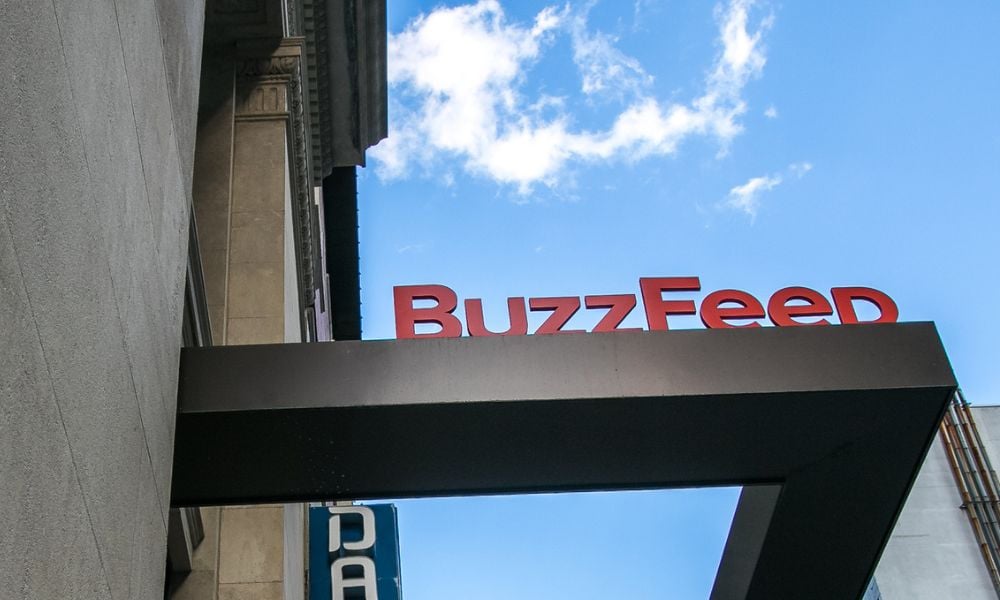
Close to 200 employees will be laid off

The layoffs just keep on coming.
BuzzFeed plans to cut about 180 employees (nearly 12% of its workforce), CNBC reported.
The New York City-based digital media company blamed a variety of factors for the decision, such as worsening economic conditions and its acquisition of Complex Networks last year. The sales, production, tech and content divisions for Complex and BuzzFeed will be impacted, but not BuzzFeed News or HuffPost, according to the company. The company expects to cut most of the jobs by the end of the first quarter, CNBC reported.
“In order for BuzzFeed to weather an economic downturn that I believe will extend well into 2023, we must adapt, invest in our strategy to serve our audience best, and readjust our cost structure,” CEO Jonah Peretti said in a memo to employees.
On Tuesday, BuzzFeed, which went public a year ago, saw shares plummet to a record low of $1.06.
Ahead of an economic downturn, three out of four (78%) American workers are fearful they will lose their jobs, according to a survey from Insight Global, a national staffing services company. Meanwhile, 56% of American workers say they don't feel financially prepared for a recession or they don't know how they would prepare for a recession. More than half (54%) would be willing to take a pay cut, even with inflation at a 40-year high, to avoid being laid off if there were a recession.
“It's unfortunate we're already seeing some companies turn to mass layoffs because I believe layoffs should be the absolute last resort,” said Bert Bean, CEO of Insight Global. “Instead, I encourage leaders to consider other solutions, such as building a plan that avoids layoffs and helps you grow through a recession. Get your employee base executing on that, because when you bounce back from a recession, you'll need your people more than ever.”
Of course, HR leaders who experienced the global recession of 2008-2009 are better positioned to weather this potential storm. They’ve learned what works and business leaders will be turning to them to take the helm. As for HR professionals who are about to enter uncharted territory, this will be trial by fire.
“You never know how long these scenarios will last,” Jaemi Taylor, managing director in the HR practice of Allegis Partners, told HRD. Before joining the New York City-based executive search firm, Taylor spent nearly 20 years recruiting HR leaders, having worked for Robert Half, Beacon Hill and ChapmanCG.
“I’ve worked with HR leaders during COVID who asked the CEO or the board for more time, whether that’s a quarter or a month, before making drastic cuts,” Taylor says. “You want to review critical hiring, determine critical business initiatives and most importantly, avoid knee-jerk reactions.”